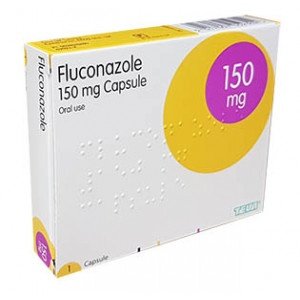Before we can issue a treatment, you’ll need to answer a short assessment. This assessment will help us recommend the right treatment for you.

Fluconazole 150mg - Thrush Treatment
From £1.99
Our site uses cookies. By continuing to use our site you agree to our cookie policy.
Free standard delivery on orders over £50
Before we can issue a treatment, you’ll need to answer a short assessment. This assessment will help us recommend the right treatment for you.
Thrush commonly refers to vaginal thrush, a common yeast infection affects women, especially in their 20s and 30s. There a many treatment options for thrush. Please choose one of the treatments below and complete the health questionnaire and one of our prescribers will ensure you have the most suitable treatment for your condition.

What is thrush?
Thrush mainly refers to vaginal thrush, which is a common yeast infection that will affect most women, especially in their 20s or 30s. Thrush is unlikely in women that have gone through menopause or that have not started their periods yet. Symptoms of vaginal thrush include swelling and itching of the vulva and a white cottage cheese-like discharge. Thrush is easily treatable with prescription and non-prescription medication.
Penile thrush (thrush on the penis) is caused by the same fungus as female thrush, however, thrush is much less common in men than women. Penile thrush can occur from taking antibiotics, not drying your penis properly, using perfumed soaps/shower gels and/or having a weakened immune system.
Diagnosis of thrush
Your first experience of thrush should be diagnosed by your doctor. Subsequent cases can then be self-diagnosed if the symptoms are the same as your first time. If you have self-diagnosed thrush and the treatment did not work, you should visit your GP. If the doctor cannot visually diagnose you, they may conduct a vaginal/penile swab, blood test and/or pH level test.
Prevention of thrush
To reduce the risk of developing thrush, you should:
Thrush is caused by a fungus called Candida Albicans. Usually bacteria in the vagina is ‘friendly’ and it keeps the fungus at bay, however, if the natural balance within the vagina is disturbed, the fungus can multiply and cause thrush, which is a harmless infection but is often irritating and uncomfortable. Penile thrush is caused the same way. There is an increased risk of developing thrush if you:
Symptoms of vaginal thrush include:
Symptoms of penile thrush include:
https://www.nhs.uk/conditions/thrush-in-men-and-women/
https://my.clevelandclinic.org/health/diseases/10956-thrush
https://cks.nice.org.uk/topics/candida-female-genital/
https://cks.nice.org.uk/topics/candida-oral/
https://bnf.nice.org.uk/treatment-summary/vaginal-and-vulval-conditions.html
No. Thrush is caused by a disturbance in the microorganisms that are found in the vagina/penis. However, it is important to regularly wash your genitals with unperfumed products to prevent thrush.
Yes, thrush can clear up on its own. However, this may take a lot longer than using treatment. With treatment, thrush will take 5 to 7 days to clear.
Yes, if you practice unprotected sex it is common to pass on thrush. Vaginal or penile thrush can also cause oral thrush if you engage in oral sex. Unprotected sex whilst having thrush can lead to a re-infection cycle where you infect your parter who can then reinfect you if you both are not treated.
There are a number of measures you can take, such as:
No. There is no scientific evidence that proves that natural yogurt will treat thrush. You should seek medical antifungal treatment.
Order in the next for Monday delivery